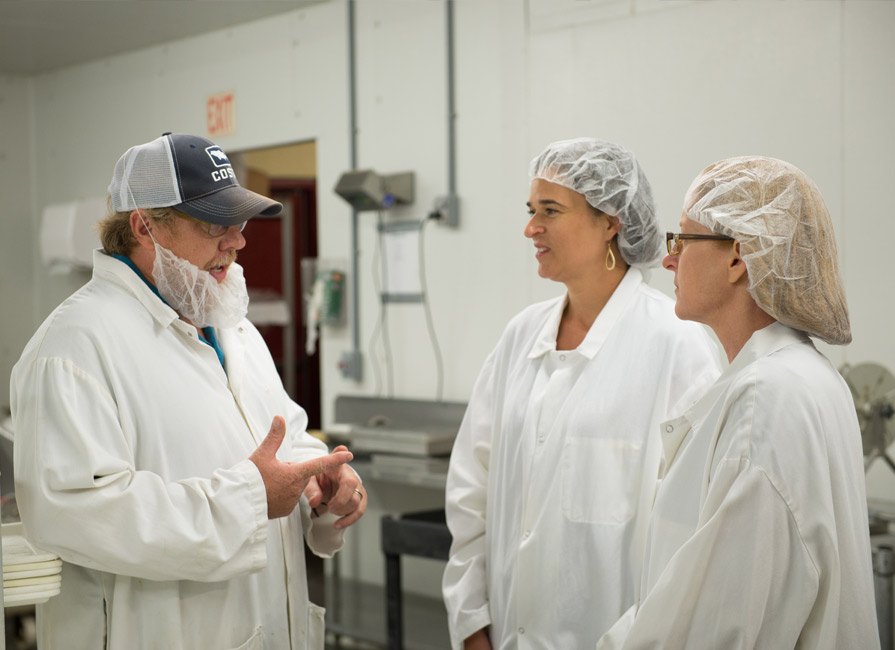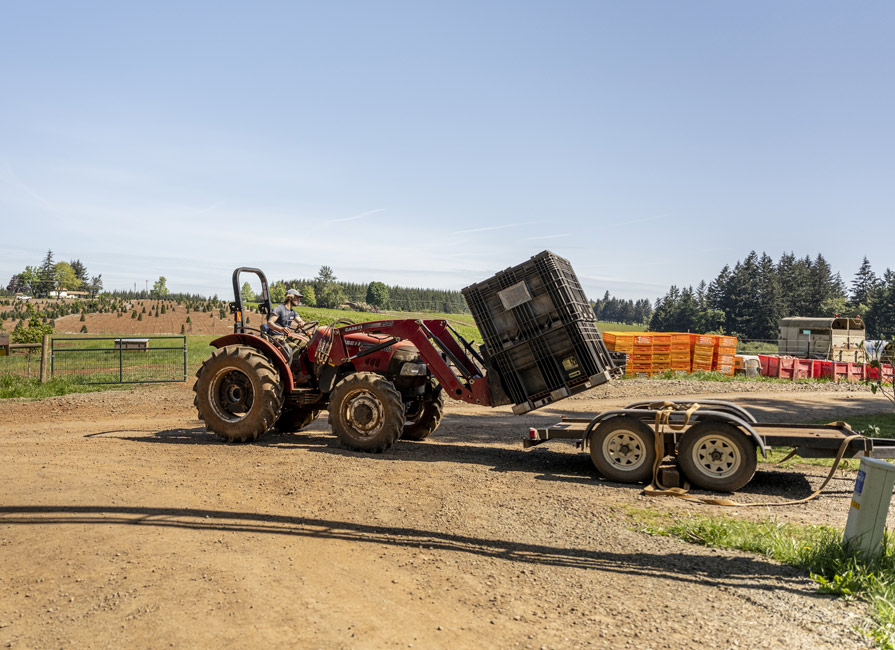One of the key attractions of our Certified Regenerative by AGW program is its practical…

Factory To Farm
In early 2022, the Biden Administration introduced a comprehensive plan to address monopolization in the meat industry.
I read the announcement with enthusiasm. Corporate concentration in the meat industry has been a problem for decades. Just four meat processing companies control 82% of the market for beef, pork, and poultry. Concentration of market power of that magnitude leads to collusion (such as price and wage fixing), discourages competition and innovation, and is well documented as bad news for both farmers and consumers. So it’s encouraging that the Administration is looking for ways to tackle the problem.
Smoke and mirrors
As it turns out, real reform—in other words, breaking up meat monopolies by strictly enforcing and strengthening anti-trust laws—is not part of their plan. (In fact, this hasn’t been tried since the 1920s). Instead, they are taking the more politically pragmatic approach of helping independent meat processors and ranchers become more competitive.
Their hope is that more competition will provide greater returns to producers and cheaper prices to consumers. They are looking to invest $1 billion in new and expanded meat processing ventures. Fifteen projects have already been identified as worthy of investment as early as this spring. So, how does Biden’s plan stack up to our vision for meat industry reform?
A real opportunity
Increased access to more affordable processing capacity could be a game changer for our North Carolina-based business, Firsthand Foods. Every week we receive 1,000s of pounds of pork, beef, and lamb, all vacuum-sealed, labeled, boxed, and palletized by numerous small-scale meat processors, our critical partners in our supply chain. We understand the challenges they face: constant labor shortages, increasing material costs, hefty equipment investments, and intense regulatory scrutiny.
Investment in this sector is long overdue and we were thrilled when the North Carolina Department of Agriculture and Consumer Services allocated close to $18 million in Covid-relief funds to help small-scale meat processors make infrastructure improvements. Despite these investments, all of the processors in our region remain booked out through the end of the year and cannot hire enough qualified people to fully operationalize their expansion plans.
Naturally, I am curious if any of the Administration’s funding will end up supporting the kinds of small-scale processing businesses that we and other aggregators, food hubs, and farmer cooperatives are working with around the country. A recent New York Times article about the Administration’s strategy suggests not. Instead, the funding is likely to support much larger-scale projects that can try to compete with the likes of Tyson and Smithfield. If past experience is our guide, the article suggests, these ventures will struggle to gain market access and will be vulnerable to the forces of horizontal integration and eventual buy out from the very same monolithic corporations they set out to compete with.
Paradigm shift
To truly transform the meat industry and break up the behemoths, we need a paradigm shift in focus—away from the efficiency of consolidation and toward the resiliency of collaboration. The pandemic has revealed the need for more nimble meat supply chains that can adapt to changing market conditions (vs. globally-oriented businesses that have a hard time pivoting).
What does resilient collaboration look like in the meat industry? For starters, it supports inter-dependence and risk sharing—farmers, processors, aggregators, marketers, customers—working together to share the essential, low-margin job of bringing meat to market.
Collaboration is the key
One of our core values at Firsthand Foods is collaboration. We collaborate because it lets us share risk and focus on what we do best, which is aggregation, sales, and marketing. Traditional business school training would suggest that to truly get ahead, make money and compete, we should build our own processing plant. We should become more vertically integrated. It’s not that we haven’t thought about it. It could alleviate some problems and potentially contain costs.
But running a meat processing plant is frankly not in our wheelhouse. We’re built to help with other parts of the supply chain. So, we opt for the complex path of cultivating partnerships. This makes our meat more expensive, but it also means we are supporting family-run businesses in rural communities and circulating food dollars locally. It means that we are part of building a distributed network that is more resilient during hard times. When the pandemic hit in March 2020, we worked with our processing partners and pivoted from selling most of our meats to restaurants, which had to shut down, to supplying grocery stores and home delivery businesses. This took less than a month and while it wasn’t pretty, we got meat to our customers while others were looking at empty shelves.
A total rethink
To launch his anti-monopolization efforts, Biden is quoted as saying “Capitalism without competition isn’t capitalism. It’s exploitation.” The task of addressing exploitation in the meat industry is a big one, and I appreciate the Administration for taking a step in that direction. But the job is far bigger and more complex than simply seeding extra competition. I believe it involves re-thinking how we do business.
FIRSTHAND FOODS
Firsthand Foods is a women-owned food hub that sells local meats from North Carolina farms with the mission of building a food community that values people and the Earth. They offer fresh cuts and specialty products made from AGW-certified pork from the North Carolina Natural Hog Growers Association, an established cooperative of AGW-certified producers dedicated to high-welfare, sustainable farm management and pig production. Firsthand Foods also offers fresh cuts and specialty products made from AGW-certified lamb sourced from farms in the Firsthand Foods lamb network.
Author: Jennifer Curtis is co-founder and Chief Executive Officer of Firsthand Foods. Visit firsthandfoods.com
Originally published in the Summer 2022 issue of AGW’s Sustainable Farming magazine.


